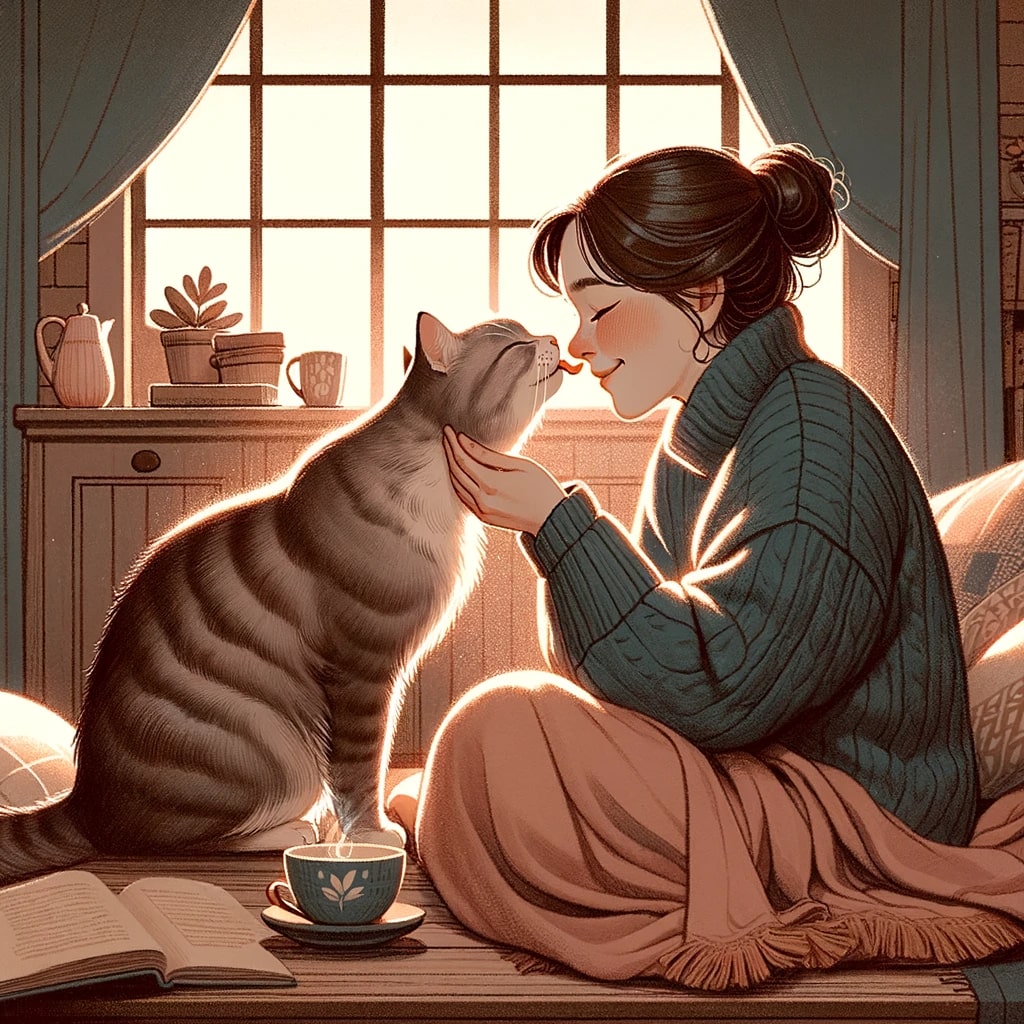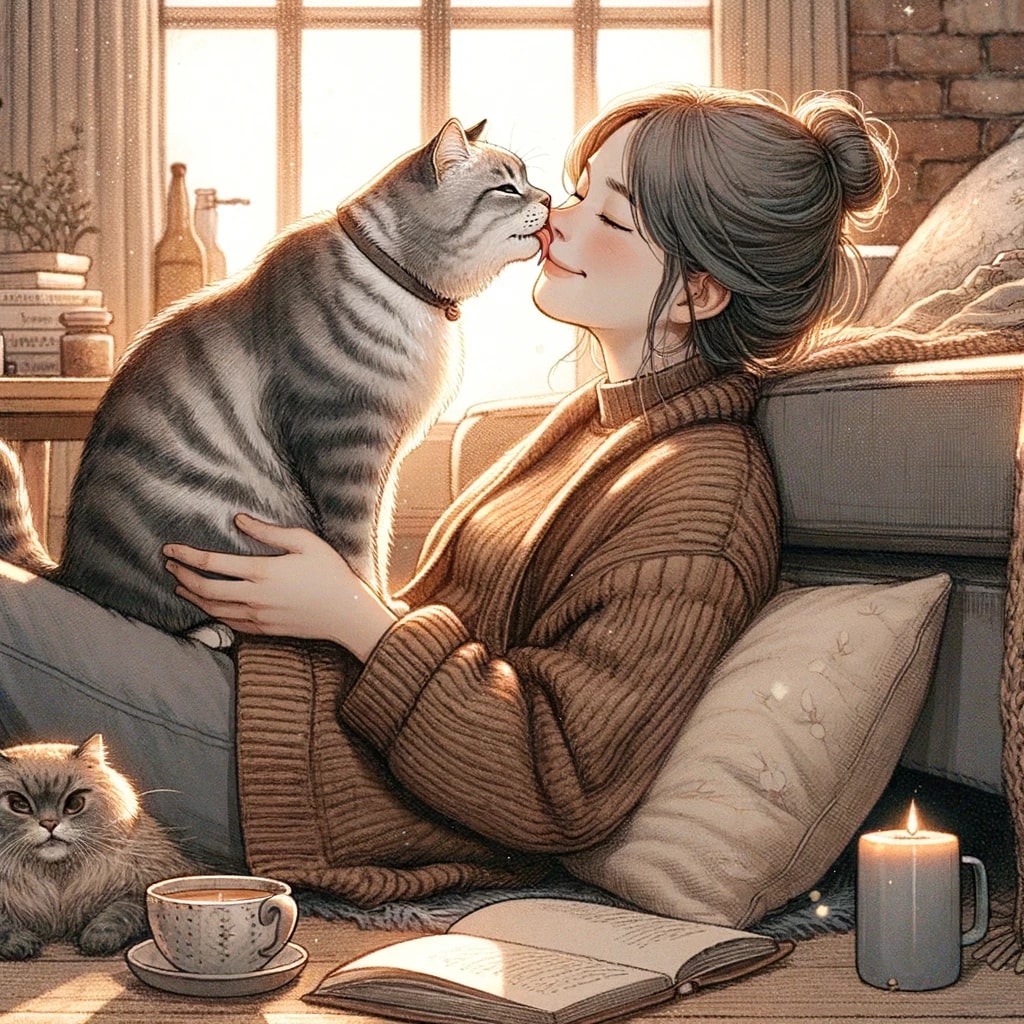Cats are creatures of enigma and affection, often demonstrating their fondness towards their human companions in various unique ways. Among these expressions of love is the somewhat peculiar behavior of licking faces. If you’ve ever found yourself pondering the question, “Why does my cat lick my face?” you’re not alone. This behavior stems from a mix of instinctual habits, communication methods, and social bonding, all of which highlight the depth of the relationship between felines and humans.
Understanding Feline Affections
To grasp why your feline friend decides to lick your face, it’s crucial to dive into the intricacies of cat-human relationships. Cats, unlike dogs, who have been bred to be inherently social and cooperative with humans, possess a more solitary nature. Yet, this does not imply they lack the desire for companionship or affection. Over millennia of domestication, cats have evolved to understand and respond to human emotions, often seeking to provide comfort through their presence, purring, or even physical contact.
Cats communicate and bond with their world significantly through scent. They mark their territory and express their comfort and affection by rubbing against their human companions, intertwining their own scent with that of their environment and the people within it.
The Social Ties Between Humans and Cats
Cats perceive their human families as part of their social group, or “pride,” and engage in various behaviors to express this connection. Licking faces can be seen as an extension of their grooming habits, a behavior indicative of their acceptance and affection towards their human companions. However, it’s worth noting that not all cats express their affection this way; each cat has its unique personality and preferred methods of showing love.
Scent Communication Among Cats
Scent plays a pivotal role in how cats interact with their environment and the beings within it. The act of a cat licking your face not only serves as a gesture of affection but also as a means of marking you as part of their territory. This exchange of scents provides comfort and security to your cat, reinforcing the bond between you.
Cats possess scent glands in various locations, including around their mouths and paws. Through licking and head-bunting (rubbing their head against you), they leave their scent on you, which is a sign of their affection and claim over you as part of their social circle.

Expressions of Feline Love
Face licking is just one of the many ways cats show affection. Other signs include purring, meowing, kneading, and following their owners around. While some may find the act of face licking uncomfortable, it’s important to recognize it as a significant gesture of love and trust from your cat.
Exploring the Reasons Behind Face Licking
Cats may lick your face for several reasons, including grooming, marking territory, seeking attention, or even because they enjoy the taste or texture of your skin. Understanding these motivations can help you better connect with your cat and appreciate the depth of your bond.
Grooming and Care
Cats are meticulous groomers, and by licking your face, they may be extending their grooming behaviors to you, viewing you as part of their family or social group. This act can be a sign of trust and comfort, though it’s important to be cautious of the potential for bacteria transfer.
Territorial Marking
By licking your face, cats may be marking you with their scent, reinforcing their bond with you and establishing their territory. This behavior is deeply ingrained in feline instinct and is a sign of their affection and sense of security with you.
Seeking Attention and Comfort
Face licking can also be a way for cats to seek your attention or comfort. It’s a behavior that signifies their need for social interaction and emotional connection with you.
Taste and Texture Curiosity
Cats have a keen sense of taste and texture, and the act of licking your face may simply be driven by curiosity or the enjoyment of the sensation.
Is Face Licking Safe?
While generally a harmless sign of affection, it’s important to consider the hygiene aspects of face licking. Cats’ mouths contain bacteria, and there’s a potential risk of allergies or skin irritation. Consulting a veterinarian is advisable if you have concerns about excessive licking or if it leads to skin issues.
Managing Face Licking Behavior
If you find face licking to be undesirable, there are gentle ways to redirect this behavior. Offering alternative forms of affection and establishing clear boundaries can help manage this behavior while maintaining a strong bond with your cat.
Face licking in cats is a multifaceted behavior rooted in affection, communication, and social bonding. By understanding the reasons behind it and how to manage it, cat owners can foster a deeper and more harmonious relationship with their feline companions, ensuring a mutual sense of love and respect.
